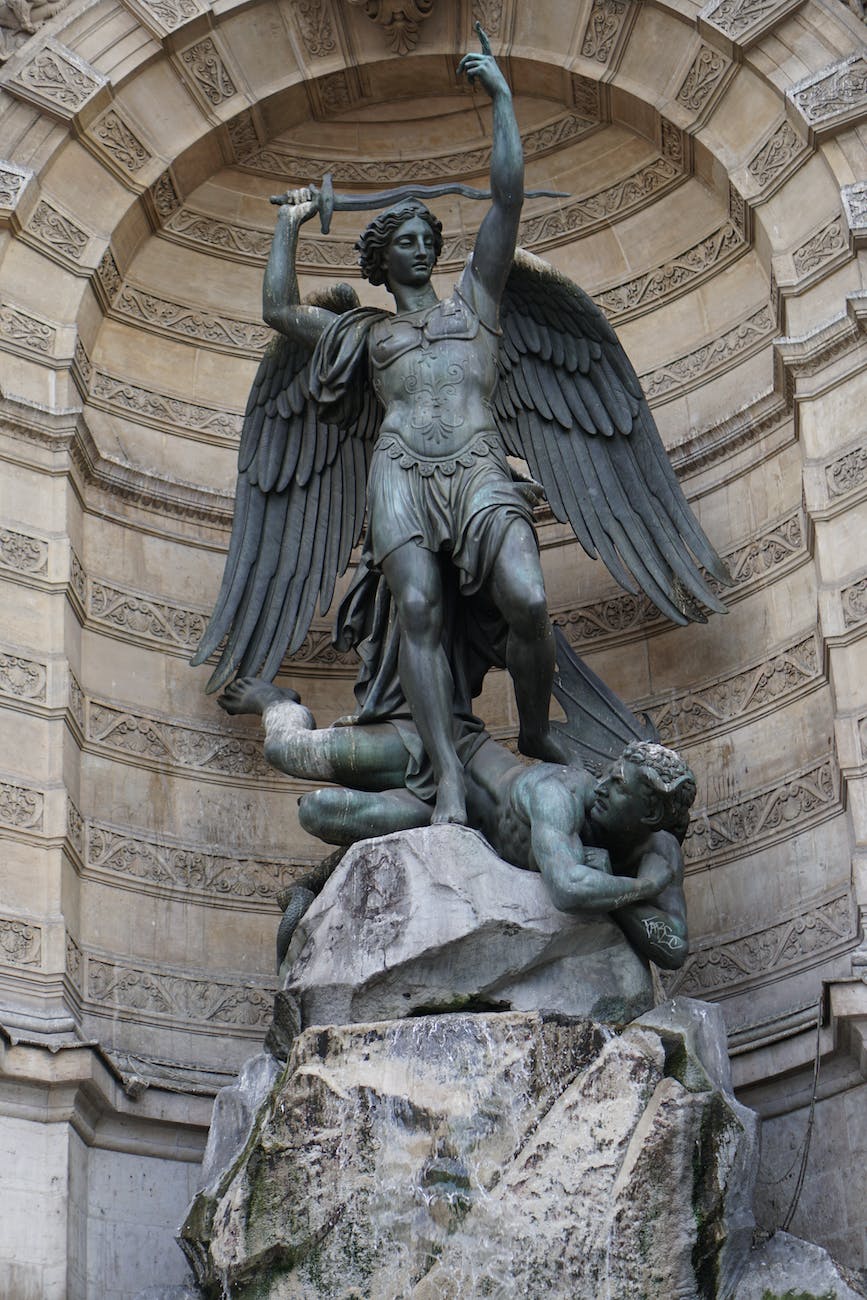The Reading is from the Holy Gospel according to St. Luke. (13:10-17)
In today’s gospel reading we are told that Jesus was teaching in one of the synagogues on the Sabbath day. The Sabbath day is Saturday. You might remember that according to the law of God, the ten commandments, this day is considered a holy day. A day on which no work should be done at all. This day, according to Jewish life and customs, was a day to rest and part of that rest was to go to the local synagogue and worship God. The synagogue functioned much like a local parish church might function, but not exactly like a church. The focus of this worship was singing of hymns and the hearing of the word of God as read from the Old Testament. In addition there was a time where someone would teach upon the text that had just been read, much like this sermon. In many ways the worship well-mirrored that of many Protestant Christians. There was no altar, no sacrifice within the synagogue, but only in the Temple in Jerusalem. So when you see ancient Christian worship, which you are blessed to see each and every week, what you are seeing is a hybrid of synagogue and Temple worship.
We received from ancient apostolic tradition the transfer of the dignity of the Sabbath to Sunday, the first day, the Lord’s day, because it is the day of the resurrection of Our Lord and savior Jesus Christ. So for us, the Sabbath is kept in all strictness in principle, but it is not kept on Saturday but on Sunday. Christ’s resurrection coupled with His life giving crucifixion, changed everything in the universe.
Now as the Lord was in the synagogue on that particular Sabbath day, there was a woman there whom we are told had a spirit of infirmity for eighteen years. If I have a cold for 18 minutes, I am ready to give up and throw in the towel. This poor woman struggled and suffered terribly. We are told that she was bent or hunched over and could not straighten herself. You may not have realized it but this woman was full of faith. How do we know that? Because she continued to find a way to come and to worship in the synagogue on the Sabbath day, even when it was far less than convenient to do so. Each step was suffering and exhaustion for her. But I am sure that she went to the synagogue with faith that God could heal her. So she continued diligently.
The Lord saw her in the synagogue. He saw her as she was and He saw past that to who she could be. Today you are here to pray and the Lord sees who you are currently and He knows your potential for the future. He knows who you can be. He knows what is ailing you. He knows what causes you suffering. He knows your weaknesses and infirmities, the physical as well as the mental and the spiritual. We have many infirmities and He knows them all.
Some of us struggle with anger, or lust or greed or pride, or perhaps a combination of them all. Others struggle with addictions such as alcohol or drugs or attention and affection from others. We all struggle to pray purely and to love purely from a sincere heart. These are not minor conditions. The condition of the heart is most critical. We really are sick, both you and I. And the first one to claim and boast of great spiritual progress or gifts is likely the most sick. We really do have need of a physician. And just as the Lord did that day in the synagogue, He sees us and He diagnoses our sickness perfectly. Thank God that He does.
The Lord saw this woman who had suffered so much and He took pity on her. What a beautiful thought, that God takes pity on us, that God cares, that God loves, that God is merciful. Nowhere apart from Christ, will you find this pure image of God as love. Our Lord Jesus Christ helped this woman. He told her that she was “freed” from her infirmity. This is the work of Christ for those who love Him. He frees them from the sickness and slavery of sin. Then He frees them from the bondage of death. Both physical death as well as the death of the soul. He resurrects those who love Him to a new and glorified life with the saints.
Are you suffering due to sickness or a particular spiritual struggle? Don’t despair, because God knows and sees everything. What we cannot do is despair, and what we must do is continue to be faithful to God as this woman was. Our faith should not be dependant on having our troubles taken away or removed. Our faith in Christ is an unshakeable faith and belief that despite our sins and failings and weaknesses, He is still truly the Son of God, and He loves us and will heal us and perfect us in due time. In fact, He has already started this process within each of us. This knowledge is true comfort and true peace.
Like the woman who suffered for a long time, we are encouraged to continue to come faithfully to the place where Christ is present and watching. To the place where He offers us true healing. We are the patients, He is the physician and this is His hospital. Finally, I leave you with a quote from St. John Chrysostom who said,
“Remember, my friends- in a court, the more you appear, the more trouble you are in. In a hospital, the more you appear, the more care and treatment you receive.” And Glory be to God Forever AMEN.
Source: Sermons
